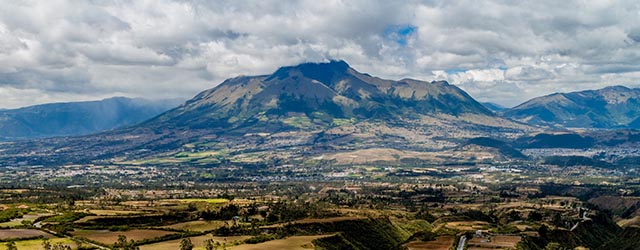In the province of Imbabura in northern Ecuador, approximately a two-and-a-half-hour drive from the capital, Quito, and close to the border of Colombia, sits Yachay, the country’s first planned “city of knowledge.”

Centered on a research university, this science and technology park and special-economic-zone-in-the-making aims to become an international innovation hub and to foster technology-intensive businesses in industries from biotech to telecoms to manufacturing. “Yachay is oriented to the development of technology and its transfer to the industrial sector,” says its CEO, Héctor Rodríguez,“in order to help transform Ecuador’s into a knowledge-based economy.”
The first phase of the project, scheduled to be completed in 2017, has so far focused on building up Yachay Tech, the university. Over time, a dozen national research institutes are expected to move here to further populate a campus and industrial park that, in the creator’s plan, will be packed solid with start-up incubators and accelerators alongside the R&D facilities of multinational corporations. “I’d say right now we are 20% operative,” says Rodríguez. “But considering all the construction that is already going on, we are easily on the way to 50% by the first trimester of 2016 and to 75% by the end of next year.”
Yachay is one of Ecuadorean president Rafael Correa’s more ambitious endeavors. Even if all goes well, it will take years for this city to fully live up to the expectations. Now the worrisome outlook for the national economy has cast some doubt on the pace of progress going forward. “Ecuador is growing at a substantially lower rate than it has in the last 10 years, and our forecast for 2016 is for a small contraction, and we might have to adjust that downward,” says Santiago Mosquera, head of research at Quito-based Analytica Investments.
Long-running uncertainty surrounding Ecuador’s investment framework could also be a problem. “The main reason foreign direct investment has not been coming here in substantial amounts is the risk, not of political change, but of institutional change, in the tax regime, the system for the repatriation of profits and so on,” says Mosquera. “Companies don’t feel assured that the current conditions will remain in place for the duration of their contracts.”
On the upside, Mosquera points out that the government in Quito is working to put in place a new law for public-private partnerships and that several key infrastructure projects under construction for some time should be up and running by early 2016.



